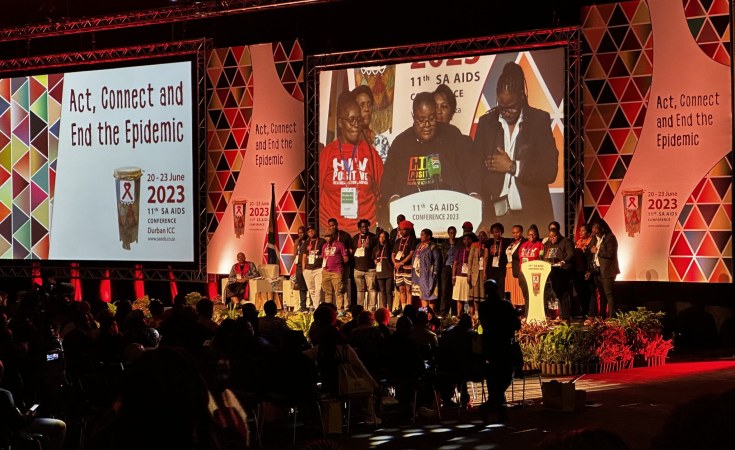South Africa is sharpening up its HIV prevention efforts by focusing on pregnant and breastfeeding women, children and adolescents as part of the Global Alliance to End AIDS in Children by 2030.
This is according to the Health Minister, Dr Joe Phaahla, who delivered a keynote address on behalf of Deputy President Paul Mashatile at the 11th South African AIDS Conference in Durban.
The new Global Alliance for Ending AIDS in Children by 2030, made up of United Nations (UN) agencies, civil society groups, governments and international partners, was announced at the International AIDS Conference, in Canada, last year.
According to UN News, the global alliance aims to prevent new HIV infections and ensure that by 2030 all HIV-positive children have access to lifesaving treatment.
The Minister also announced on Tuesday that government has embarked on the Treatment Literacy Framework project that aims to improve treatment adherence, eliminate stigma and prejudice, encourage health-seeking behaviour and increase treatment uptake.
"This is important to ensure that people on antiretroviral treatment keep their virus under control so they can live a healthy life. Most importantly, HIV cannot be passed on to a sexual partner when the amount of virus cannot be found," Phaahla explained.
"If we all pull in the same direction, we have a chance of achieving our goal of 95-95-95 and in the long run, making South Africa free of HIV/AIDS."
In December 2020, the Joint United Nations Programme on HIV/AIDS (UNAIDS) outlined a set of new targets calling for 95% of all people living with HIV to know their status, 95% of all people with diagnosed HIV infection to receive sustained antiretroviral therapy, and 95% of all people receiving antiretroviral treatment to have viral suppression by 2025.
"In the remaining two years, we have to accelerate our efforts to meet the targets. Though we have made great strides towards achieving the first 95% of the UNAIDS 95-95-95 targets, we still have a long way with the second and the third 95%."
Phaahla told delegates that South Africa is currently sitting at 94% of people living with HIV who know their status, while 77% of those who know their status and are on antiretroviral treatment.
Meanwhile, 92% of those who are on treatment have a low viral load.
However, according to Phaahla, South Africa is lagging to meet all of the set targets with respect to men and children under the age of 15.
On the other hand, more effort is needed to place and retain more people with HIV on treatment.
"To achieve the 95-95-95 targets, we must initiate an additional 1.4 million people on treatment."
The Minister called on delegates to use the conference as a platform to share lessons, learn from one another, reflect and plot the path forward for a collective response to the HIV epidemic.
"We are confident that your discussions will contribute substantially to the global HIV scientific movement, which continues to produce innovative HIV management interventions.
"Solutions to South Africa's HIV burden lie in this room," he said.
This year's gathering takes place under the 'Act, Connect and End the Epidemic' theme, bringing together the HIV community such as scientists, researchers, social activists, policymakers and People Living with HIV (PLHIV).
The focus is to review and reflect on progress made towards HIV/AIDS and tuberculosis (TB) epidemic control amid pandemics and other global health threats.
He said government also needs to improve access to treatment and prevention commodities such as pre-exposure prophylaxis, especially for vulnerable groups including sex workers, the LGBTQI+ (lesbian, gay, bisexual, transgender, queer, and intersex) community and young people, particularly adolescent girls and young women.
"I would want to stress again that the South African Constitution forbids any form of discrimination based on a person's sex, gender, or sexual orientation, whether on the part of the state or a private citizen."


